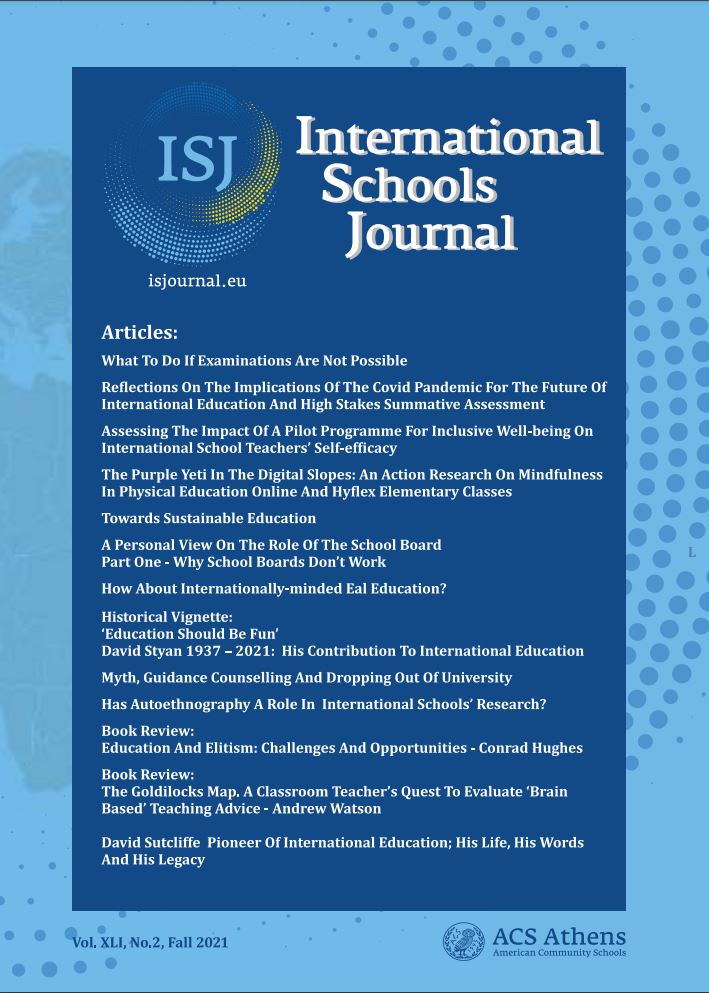ISJ Fall 2021: Has Autoethnography a role in International Schools’ Research? / Jacob Huckle
10,00€
‘Telling stories is an ancient practice, perhaps as old as human history. Imagine a family clan sitting around a fire pit on a starry night to listen to the family’s migration history. Or picture a grandmother rocking in a chair with her grandchildren on her lap, telling her childhood memories’ (Chang, 2016: 31). Chang (2016: 31) reminds us, the stories humans tell are often, at least in part, autobiographical, ‘even when [they] feature the storytellers’ ancestors, families, relatives, neighbors, or communities’. Such self-narration has ‘increased significantly in volume in recent decades’, including forms such as ‘autobiography, memoir, journal, diary, personal essay, or letter’ (Chang, 2016: 31).
With this, the use of self-narrative in various forms has grown in humanities and social science research (Chang, 2016: 32), and autoethnography is one strand of this, distinguished from other forms of self-narrative inquiry, argues Chang (2016: 43) by the fact that it ‘transcends mere narration of self to engage in cultural analysis and interpretation’. This meaning of autoethnography is revealed in the term’s constituent parts: auto (self) + ethnos (culture) + graphy (writing) (Throne, 2019: 2). Autoethnography then is a form of inquiry ‘concerned with producing creatively written, detailed, local and evocative first person accounts of the relationship between personal autobiography and culture’ (Grant et al., 2013: 2). Such inquiry requires autoethnographers to ‘zoom backward and forward, inward and outward’ between their personal experience(s) and the context(s) within which they occur(ed) (Bochner and Ellis, 2016: 65). […]



